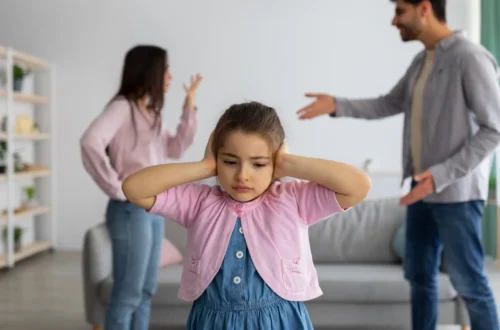Have you ever wondered whether smiling through the pain might be doing more harm than good?
Pretending to Be Okay means hiding your true feelings to look happy at work, with family, or friends. It might seem like a small thing, but it can really hurt your emotional health. It also makes it harder to ask for help when you really need it.
Why this matters: in the United States, many people don’t get help for their mental health. CDC data show millions of people suffer from untreated anxiety and depression. The American Psychological Association found that hiding your feelings can lead to more depression, anxiety, and health problems.
When you always pretend to be okay, it can make your problems last longer. It can also make things worse for you in the long run.
In this article, you’ll learn why people hide their feelings. You’ll see how it leads to emotional exhaustion. You’ll also understand how it affects your relationships and communication. And you’ll discover the serious mental health effects it can have.
The main goal is to help you become more aware of your emotions. We want you to recognize the signs that something is wrong. And we hope to encourage you to find healthier ways to deal with your feelings or to seek professional help if needed.
Key Takeaways
- Pretending to be okay involves deliberate emotional suppression and masking in social settings.
- Hiding your feelings can undermine emotional well-being and delay needed care.
- Evidence from the CDC and APA links suppression to worse outcomes for anxiety and depression.
- The article outlines causes, signs of exhaustion, relationship impacts, and health consequences.
- You’ll gain practical insight to spot warning signs and consider healthier ways to cope.
Pretending to Be Okay: Why you might hide your feelings
When you say you’re fine but feel stressed, it’s because of social and psychological reasons. Understanding these helps you see patterns in your actions. It shows how pretending to be okay affects your daily life.
Social pressure and expectations
In the United States, being tough and productive is often praised. Places like Google and Starbucks might seem to value calmness over openness. You might feel like showing weakness is risky.
People often hide their feelings to fit in or avoid trouble. This makes it seem easier to pretend everything is okay.
Fear of judgment and rejection
You might hide your emotions because you fear being judged or rejected. Studies in clinical psychology show that stigma around mental health makes people less likely to seek help. They hide their feelings instead.
Feeling scared of being rejected can make you say you’re fine without really feeling it. This is a way to protect yourself from criticism and social problems.
Coping mechanisms and learned behavior
Masking your feelings can start early, especially if your family doesn’t talk about emotions. It can also be a way to cope after a traumatic event. Seeing others who hide their feelings can make you do the same.
At first, hiding your feelings might make you feel better. But over time, it becomes a habit. It can make it hard to deal with your emotions and ask for help.
Signs you might be hiding your feelings include quickly saying you’re fine, using humor to change the subject, or avoiding talk about stress. Experts say hiding feelings can make you feel more alone and slow down healing.
It’s important to remember that hiding your feelings is common and okay. Learning more about mental health can help you see the harm of hiding too much. It encourages you to find better ways to cope.
Emotional exhaustion from constant masking
Keeping up the act of being okay can really take a toll. Emotional exhaustion makes you feel drained and unable to cope. It’s not just feeling tired. It’s feeling empty and numb after hiding your true feelings for too long.
What emotional exhaustion feels like
Waking up tired, even after a good night’s sleep, is common. You might feel irritable and have trouble focusing. Simple decisions start to feel overwhelming.
Feeling emotionally numb is another sign. You might feel disconnected from your friends and work. This can lead to a lack of motivation and affect your emotional health.
How masking drains your energy and motivation
Always watching your emotions to hide them takes a lot of mental effort. It forces you to think carefully about how you react and act in social situations.
Studies show that hiding your feelings can lower your productivity and increase fatigue. It also affects your body’s stress response, leading to sleep problems and weakened immunity.
These changes can make it harder to take care of yourself and do everyday tasks. It’s a vicious cycle that harms your emotional and mental health.
Signs you’re approaching burnout
Look out for mood swings, dissatisfaction at work, and missing more days. You might start to neglect yourself or turn to substances to cope.
Feeling disconnected from others and seeing your performance drop are warning signs. If you’re having trouble sleeping or experiencing panic attacks, it’s time to seek help.
Keep track of how you’re feeling and take breaks. Set boundaries and plan time for yourself. This can help reduce the need to hide and protect your emotional health.
| Area | Common Signs | Practical Steps |
|---|---|---|
| Energy and focus | Persistent fatigue, poor concentration, slowed thinking | Brief walks, time-blocked work, limit multitasking |
| Emotional state | Irritability, numbness, emotional blunting | Journaling feelings, naming emotions, small disclosures to trusted people |
| Behavior | Withdrawal, absenteeism, substance use | Set social goals, seek peer support, consult a clinician |
| Physiological signs | Insomnia, headaches, immune changes | Improve sleep hygiene, routine checkups, stress-reduction techniques |
Impact on relationships and communication
Keeping your feelings hidden can hurt your relationships. Your calm exterior might hide your true feelings. This makes it hard for others to understand and support you.
Over time, this gap affects how people see you and how you feel about them. It can make your connections weaker.
Eroding trust when you hide true emotions
Keeping your feelings hidden can confuse others. Partners might feel distant and wonder what you’re hiding. This uncertainty erodes trust.
Attachment theory shows that being open builds safety. But keeping secrets creates doubt.
Miscommunication and unmet needs
If you don’t share your needs or worries, others can’t help. Small issues might turn into anger or silence. This can lead to bigger conflicts.
Being clear about your feelings can stop these cycles. Saying “I feel… when…” helps express needs without blame. It’s better to talk calmly and share your feelings.
Long-term effects on intimacy and social support
Always hiding your feelings can make you feel isolated. It weakens your emotional connections and support network. Research shows that sharing feelings strengthens relationships, while hiding them can harm them.
Small steps can help you feel closer to others. Start by sharing small things with trusted people. Couples therapy can also help improve communication and trust.
Mental health consequences and reduced emotional well-being
Pretending to be okay can affect how you feel and your body’s response. Hiding your true feelings can stop you from processing emotions. This can lead to deeper problems with mood, thinking, and daily life.
Increased anxiety and depression risk
Studies show that hiding your feelings can lead to more depression and anxiety. Avoiding honest talks can make symptoms last longer and get worse. This is because you’re not getting the help you need from a therapist or psychiatrist.
Primary care can use tools to spot early signs of these issues. If you feel low, anxious, or lose interest, get checked out. This way, you can start treatment before things get worse.
How suppression affects emotional regulation
Keeping emotions inside means you’re not using good coping skills. This makes your feelings grow stronger over time. It’s hard to manage your emotions well.
Unexpressed feelings can come out as anger, panic, or sadness. Therapies like CBT and ACT teach you how to change these patterns. They help you deal with your feelings in a better way.
Connection to physical health and stress response
Suppressing emotions can make your body stressed. This can raise your heart rate, blood pressure, and cortisol levels. These changes can affect your sleep, immune system, and digestion.
Long-term, this stress can lead to serious health issues like high blood pressure or metabolic problems. Mindfulness and regular medical care can help reduce this stress. They support your physical health.
To do better, raise awareness about mental health. Get screened for anxiety or depression. And talk to professionals who know what they’re doing. Using proven methods can help you manage your emotions and body better.
Conclusion
Pretending to be okay might seem like an easy way out when you’re scared of being judged. You might hide your feelings because of social pressure or fear of not being understood. But, this short-term solution can lead to emotional exhaustion and drain your energy.
Keeping your emotions hidden can also harm your relationships. It erodes trust and causes misunderstandings. This can increase your risk of anxiety and depression and even affect your physical health.
Start small to take care of your emotional health. Acknowledge your feelings, share them with someone you trust, and make time for self-care. Keep an eye out for signs of burnout and seek help when needed. For mental health support, check out the National Alliance on Mental Illness, MentalHealth.gov, or the American Psychological Association.
Think about why you hide your feelings and take a small step to be more open this week. Taking care of your emotional well-being is crucial for your health and resilience.
FAQ
What does “pretending to be okay” mean?
Pretending to be okay means hiding your true feelings. You might say “I’m fine” when you’re not. Or use humor to avoid talking about your feelings.This behavior is a way to hide your emotions. It can be a short-term coping mechanism or a long-term habit.
Why do people hide their feelings?
People hide their feelings for many reasons. Social pressure, fear of judgment, and learned behaviors are common. In some places, showing emotions is seen as a weakness.Experiences from the past, trauma, or observing others can also influence this behavior. While hiding feelings might seem helpful in the short term, it can lead to isolation and prevent seeking help.
How does masking emotions lead to emotional exhaustion?
Suppressing your emotions takes a lot of mental energy. Over time, this can make you feel tired, irritable, and numb.It can also affect your ability to concentrate. Neurobiologically, suppressing emotions activates stress systems and raises cortisol levels. This can harm your sleep, immunity, and energy levels, leading to burnout.
What signs show I’m approaching burnout from masking my emotions?
Signs of burnout include insomnia, mood swings, and decreased motivation. You might also withdraw from friends, use more substances, or struggle with daily tasks.Look out for emotional blunting, panic attacks, or a drop in personal care. If you notice these signs, it’s time to seek help and reduce stress.
How does pretending to be okay affect my relationships?
Hiding your emotions can damage trust and intimacy. When you don’t share your feelings, others can’t respond properly. This leads to miscommunication and resentment.Suppression can also lead to sudden outbursts. Over time, this can weaken your social support and increase loneliness.
Can emotional suppression increase my risk of anxiety or depression?
Yes, suppressing emotions can increase your risk of anxiety or depression. Avoiding emotional processing allows distress to build up. This can worsen your mental health.Effective strategies like cognitive reappraisal or therapy can help. But suppression typically makes things worse.
Does hiding emotions affect physical health?
Yes, suppressing emotions can harm your physical health. It activates stress systems, increasing heart rate and cortisol levels. This can lead to sleep problems, digestive issues, and weakened immunity.It can also increase your risk of hypertension and metabolic problems. The mind-body connection means emotional concealment can have physical effects.
What practical steps can I take to stop pretending to be okay?
Start small by tracking your feelings in a journal. Practice naming your emotions and share a concern with someone you trust. Use “I” statements to express your needs.Schedule time for rest and build a support network. Evidence-based strategies like CBT, ACT, and mindfulness can help. If symptoms are severe, seek professional help.
When should I seek professional help?
Seek help if you’re experiencing persistent sadness, anxiety, or panic attacks. Also, if masking emotions prevents you from getting support or causes frequent burnout.Resources like the American Psychological Association, National Alliance on Mental Illness (NAMI), and MentalHealth.gov can help you find professionals.
How can I rebuild trust with someone if I’ve been hiding my emotions?
Rebuilding trust starts with honesty. Explain why you hid your feelings and acknowledge the impact. Share one concrete feeling or need in a calm moment.Use gradual disclosure and consider couples or family therapy. Consistent openness and follow-through can restore intimacy and strengthen relationships.




